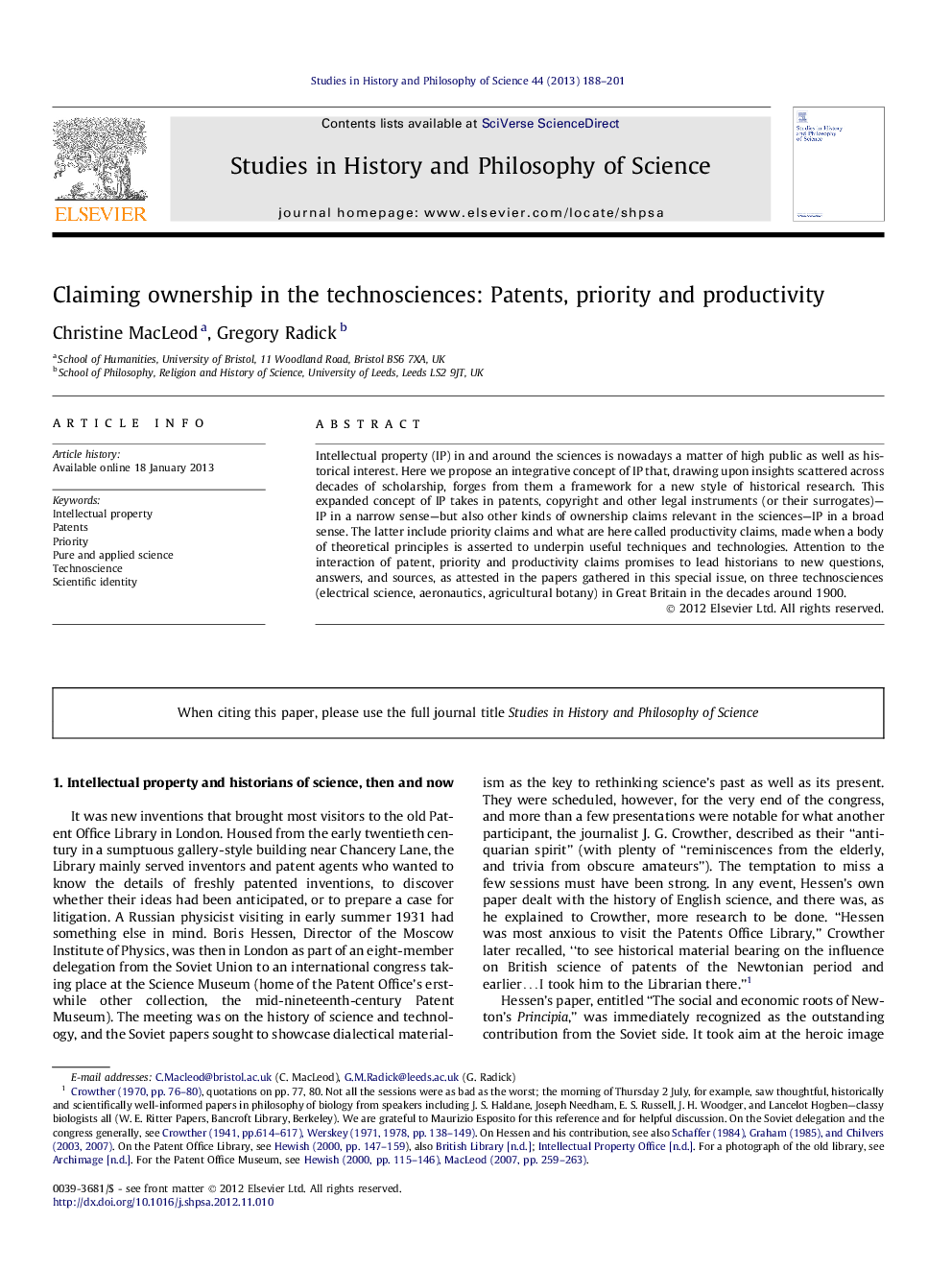| Article ID | Journal | Published Year | Pages | File Type |
|---|---|---|---|---|
| 1160245 | Studies in History and Philosophy of Science Part A | 2013 | 14 Pages |
Intellectual property (IP) in and around the sciences is nowadays a matter of high public as well as historical interest. Here we propose an integrative concept of IP that, drawing upon insights scattered across decades of scholarship, forges from them a framework for a new style of historical research. This expanded concept of IP takes in patents, copyright and other legal instruments (or their surrogates)—IP in a narrow sense—but also other kinds of ownership claims relevant in the sciences—IP in a broad sense. The latter include priority claims and what are here called productivity claims, made when a body of theoretical principles is asserted to underpin useful techniques and technologies. Attention to the interaction of patent, priority and productivity claims promises to lead historians to new questions, answers, and sources, as attested in the papers gathered in this special issue, on three technosciences (electrical science, aeronautics, agricultural botany) in Great Britain in the decades around 1900.
► Intellectual property (IP) has long concerned students of science and technology. ► We propose a new distinction between IP in a narrow and a broad sense. ► “IP-narrow” takes in patents and other means of securing profits from innovation. ► “IP-broad” takes in claims to intellectual ownership in the sciences more generally. ► We introduce papers tracking IP-narrow/broad interactions in Britain around 1900.
